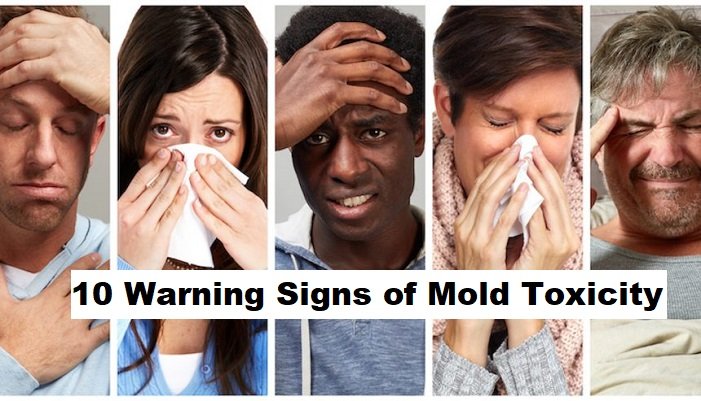If you’ve ever experienced persistent health issues without a clear cause, mold toxicity might be an unexpected culprit. Mold is a common and often underestimated problem that can wreak havoc on our well-being.
In this article, we will explore the 10 Warning Signs of Mold Toxicity, shedding light on this silent intruder that might be compromising your health.
1. Unexplained Fatigue
Feeling tired all the time, despite getting sufficient rest? Mold toxicity could be draining your energy. Mold releases mycotoxins, which can lead to chronic fatigue, making it difficult to power through your daily activities.
2. Respiratory Issues
If you’re grappling with frequent coughing, wheezing, or shortness of breath, mold might be triggering respiratory problems. Mold spores can irritate the lungs, exacerbating conditions like asthma and causing persistent respiratory discomfort.
3. Persistent Headaches
Headaches that seem to linger without a clear cause might be linked to mold exposure. The mycotoxins released by molds can impact the nervous system, leading to chronic headaches that don’t respond to conventional treatments.
4. Brain Fog and Memory Issues
Mold toxicity doesn’t just affect the body; it can also impact cognitive function. If you find yourself struggling with concentration, memory lapses, or a persistent feeling of mental fog, mold exposure may be the culprit.
5. Joint and Muscle Pain
Unexplained aches and pains in your joints and muscles could be a sign of mold toxicity. Mycotoxins can contribute to inflammation, leading to discomfort that seems to have no apparent cause.
Do You Know How Many Poses in 3 Person Yoga Poses?
6. Digestive Problems
Mold can wreak havoc on your digestive system, causing issues like bloating, diarrhea, and stomach cramps. These symptoms are often overlooked, but if they persist, mold toxicity may be worth investigating.
7. Skin Issues
Skin problems such as rashes, itchiness, or redness may be indicative of mold exposure. Mycotoxins can affect the skin, leading to a variety of dermatological issues that may not respond well to conventional treatments.
8. Increased Sensitivity to Light and Noise
Mold toxicity can heighten sensitivity to stimuli like light and noise. If you find yourself becoming more sensitive to your surroundings, mold exposure could be a contributing factor.
9. Mood Swings and Anxiety
Mycotoxins can have a profound impact on mental health, leading to mood swings, anxiety, and even depression. If you notice sudden shifts in your emotional well-being, it’s essential to consider the possibility of mold toxicity.
10. Visual Disturbances
In some cases, mold toxicity can manifest as visual disturbances such as blurred vision or eye irritation. If you’re experiencing unexplained issues with your eyesight, mold exposure could be a potential cause.
Understanding these warning signs is crucial for early detection and mitigation of mold toxicity. If you resonate with several of these symptoms, it’s advisable to consult with a healthcare professional and consider evaluating your living or working environment for mold.


